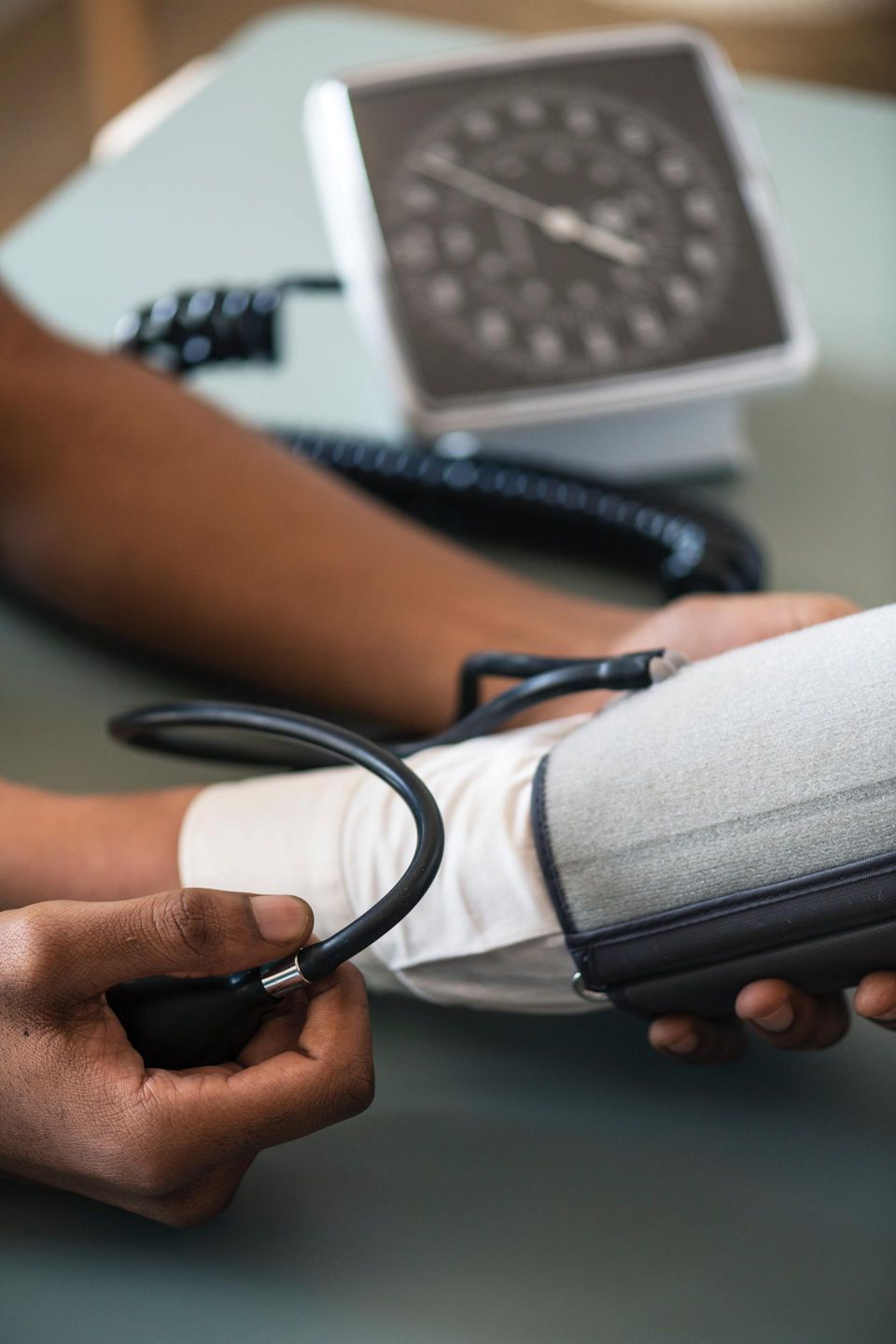Feb 19, 2019 Bills, bills, bills
Healthcare, educational opportunities, ports
The Georgia House of Representatives resumed our work on Tuesday, February 19 to begin the sixth week of the 2019 legislative session. We started this week by convening for a joint session with our colleagues in the Senate to hear the Supreme Court of Georgia’s Chief Justice Harold D. Melton deliver the annual State of the Judiciary address. In addition to hearing the State of Judiciary address this week, my colleagues and I met in the House Chamber for four legislative days, as well as in our committees, to consider and pass several important bills.
The recently appointed Chief Justice, Harold D. Melton delivered his first State of the Judiciary address before a joint session on Tuesday. This annual address recounts the accomplishments of Georgia’s judicial branch and the challenges it will face in the year ahead. Due to the great relationships built between the judiciary branch, the state legislature and the executive branch, Chief Justice Melton reported that Georgia’s judiciary branch stands sturdy, stable and strong and is poised to meet the inevitable changes that lie ahead.
In his remarks, Chief Justice Melton touted the success of our state’s innovative criminal justice reform initiatives, led by former Governor Nathan Deal. Through these efforts, Georgia has reduced recidivism rates, saved taxpayer dollars spent on Georgia’s high prison populations and strengthened communities by giving non-violent offenders the chance to become law-abiding and productive citizens. One initiative that has made a critical impact in our judicial system is our accountability courts, or “specialty” courts, which provide effective alternatives to sentencing for nonviolent offenders. These specialty courts have been highly successful in combatting recidivism because judges, social workers and volunteers take the time to understand the struggles and the individual backgrounds behind the people they serve. Chief Justice Melton went on to say that although Georgia continues to set a national example with our criminal justice reform measures, our communities can have even more success by addressing the root cause of criminal behavior before it reaches the court system. Chief Justice Melton challenged the House and Senate to consider initiatives that engage high risk individuals earlier in the timeline. An extraordinary number of Georgia children are placed in foster care, and the challenges that these children face often put them at higher risk of getting into trouble, dropping out of school, having unplanned teenage pregnancies and ultimately encountering the judicial system as adults. Chief Justice Melton reiterated the importance of keeping children with their families and out of foster care with the help of the Kinship Care program. Kinship Care works to give guardians like grandparents, relatives and even family friends who serve as guardians the legal authority they need to make medical, financial and educational decisions for the children. Chief Justice Melton encouraged us to support these efforts and use these tools to intervene and steer individuals on a better path to reduce the number of court cases.
Chief Justice Melton went on to highlight the profound changes courts have seen with the use of technology. New technology can help citizens without legal representation and those with language barriers navigate complex court procedures. To simplify this process and speed it up, courts across Georgia already take advantage of chatbots and online forms to improve access and guide self-represented litigants through the process of filling out civil pleadings. This technology can also handle basic questions, look up citation information, utilize a text reminder service and expedite judges’ responses to emergency requests from the victims of domestic violence to give victims assurance of safety and peace of mind. Chief Justice Melton thanked the General Assembly for its support, which has provided opportunities for electronic filing and access to court documents from anywhere in the state and an electronic data system that shares information about criminal cases at every stage. The Chief Justice noted that the courts have made tremendous strides with technology, which will continue to transform our courts in the coming years.
After the joint session dissolved on Tuesday, the House unanimously passed House Bill 158, legislation that would give HIV-positive individuals on Medicaid access to the most effective antiretroviral medications on the market. This bipartisan legislation would require that all individuals suffering from HIV/AIDS, whether in the state drug program or on Medicaid, receive the same antiretroviral drugs, including single tablet regimens. The cost to treat an individual with HIV/AIDS under the state drug program is $338,000, whereas, the cost per individual without this program is $1.7 million. Our state has an extremely high number of new HIV diagnoses per year, and the proposed legislation seeks to ensure the health and well-being of all Georgians while combatting the spread of HIV/AIDS in our state.
This week, we also passed House Bill 130 and House Bill 59 to expand educational opportunities for our K-12 students across our state. In 2010, the Georgia General Assembly established the Georgia Foundation for Public Education (GFPE) to promote and implement educational initiatives and programs throughout the state. Under HB 130, the GFPE would be authorized to qualify as a 501(c)(3) nonprofit organization. As a 501(c)(3) nonprofit organization, the foundation would be able to solicit and accept more funding to carry out its purpose of supporting educational excellence in public schools and at the Georgia Academy for the Blind, Georgia School for the Deaf and Atlanta Area School for the Deaf. Additionally, the House passed HB 59 to ensure that military families that move to Georgia have the same access to public education as Georgia residents. HB 59 would allow parents or guardians on active duty in the military to pre-enroll a student in a local school district when they receive official military orders to transfer to Georgia, instead of requiring the family to establish residency first. This legislation would expedite the enrollment process for these students so that they can continue to learn without interruption. Both of these bills will help foster educational excellence and ensure that Georgia students achieve the best educational outcomes possible.
My colleagues and I also passed House Bill 186 this week to continue in our efforts to provide quality health care to all Georgians. This bill ensures that the proceeds from the sale or lease of a hospital property are put into an irrevocable trust fund solely for the purpose of providing indigent care in our state. After selling or leasing hospital properties, hospital authorities in Georgia may have significant assets available, but, there is not a purposeful avenue for a hospital authority to use these funds to give back to the local community. Currently, proceeds over $100,000 from a sale or lease are placed in a trust fund and used for hospital care for indigents, but HB 186 amends current Georgia law so that the interest on these funds can be used for health care purposes for indigents instead of for hospital only use. This change would allow local authorities to use the funds generated by the trust fund for a wide variety of healthcare purposes for indigents, including clinics and preventative measures. This important legislation would be economically efficient, provide better health care for indigent patients and ensure that citizens throughout Georgia can receive desired health care within their communities.
On Thursday, February 21, the House adopted a resolution that would seize the potential of our coastal ports and expand our growing economy. Georgia is fortunate to have a range of deep water ports and transportation systems that are utilized by businesses across the nation. Our ports and freight industries provide 439,000 jobs a year, generate $25 billion in personal income and $2.9 billion annually in state and local tax revenues, and 10 percent of all exports in the country come through our ports. While these ports, rail systems and highways have great potential, the Georgia General Assembly must be proactive in implementing policies that will aide these industries as they grow. House Resolution 37 establishes the Georgia Commission on Freight and Logistics, which would be comprised of members of the House and Senate, along with various area experts from the Georgia Municipal Association, Association County Commissioners of Georgia, Metro Atlanta Chamber of Commerce and the Georgia Ports Authority. The joint commission would spend one year analyzing, determining and recommending comprehensive public policy development and funding for the 2020 legislative session that would support our freight and logistics industries and keep our state economically competitive. The current and future economic health of Georgia relies on a thriving and productive freight industry, and through the work of the Georgia Commission on Freight and Logistics, Georgia will remain one of the top states to do business.









